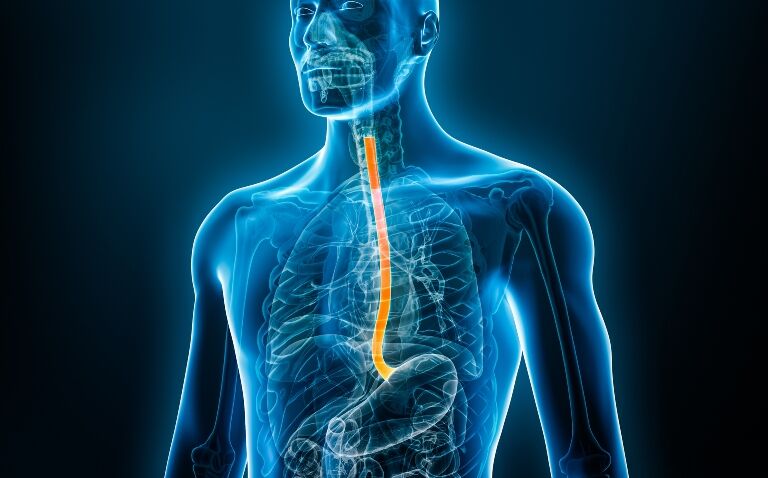A pilot project to help diagnose Barrett’s oesophagus using a capsule sponge test has reduced the need for invasive endoscopy in thousands of low-risk patients, NHS England has announced.
The so-called ’sponge on a string’ test involves patients swallowing a small capsule-shaped device which contains a tiny sponge that collects cell samples for analysis before being extracted via an attached string. It can be carried out quickly in a short appointment without the need for sedation.
NHS England began piloting the test during the Covid-19 pandemic when there was increased pressure on services and a growing backlog for endoscopy. Launched at 30 hospital sites across 17 areas in England including Manchester, Plymouth, London, Kent and Cumbria, over 8,500 patients have now been tested with the capsule sponge.
Of these, almost eight out of 10 were discharged without the need for further testing. Those with positive results who were referred on for an endoscopy had the highest prevalence of Barrett’s oesophagus at 27.2%, compared to zero patients with negative results who completed an endoscopy.
Consultant-led, nurse-run service
Evaluation of the NHS pilot showed that using the capsule sponge was highly cost effective compared to using only endoscopy for diagnosing patients – saving around £400 per patient. It also freed up endoscopy capacity for higher risk patients and those referred for urgent tests for oesophageal cancer, helping to reduce waiting lists.
One of the first pilot sites at East and North Hertfordshire NHS Trust has now performed around 1,400 capsule sponge tests – offering it to both patients with reflux symptoms via a new consultant-led, nurse-run early diagnosis service, as well as to patients who are on an existing Barrett’s surveillance programme.
In the first 1,000 patients, the capsule test identified Barrett’s in 6% of patients with reflux and found two new cancers. It also found three patients with dysplasia who may otherwise have had a longer time to diagnosis. A total of 72% of reflux patients were discharged back to their GP without the need for an endoscopy.
As of January 2024, 368 patients had a positive test result, of whom about half have confirmed Barrett’s oesophagus.
Capsule sponge test has ‘huge benefit‘
Dr Danielle Morris, a consultant gastroenterologist at the trust said: ‘Using the capsule sponge test as a diagnosis triage tool has had huge benefits for patients, avoiding the need for unnecessary gastroscopy in almost seven out of 10 patients, and helping to reduce endoscopy waiting lists enabling us to prioritise those who really need endoscopy to have it done quickly.
‘The test is performed by a single trained practitioner in an outpatient setting, so it is very resource light compared to gastroscopy, and our patients are very supportive of the service – with almost nine in 10 patients preferring the capsule sponge to a gastroscopy.’
With around 9,300 new oesophageal cancer cases in the UK every year, earlier detection of Barrett’s oesophagus before it becomes cancerous is key to saving lives, NHS England said.
Professor Rebecca Fitzgerald, director of the early cancer institute at the University of Cambridge, who developed the test, said: ‘Timely diagnosis is vital for improving outcomes for patients [so] it is very exciting to see the positive results of the NHS England real-world pilot for our capsule-sponge test.
‘This is a major step forward to making this simple test more routinely available outside of clinical trials.’
In 2021, a study found that oesophageal cancer cases had tripled in under 50s over the past 30 years.










